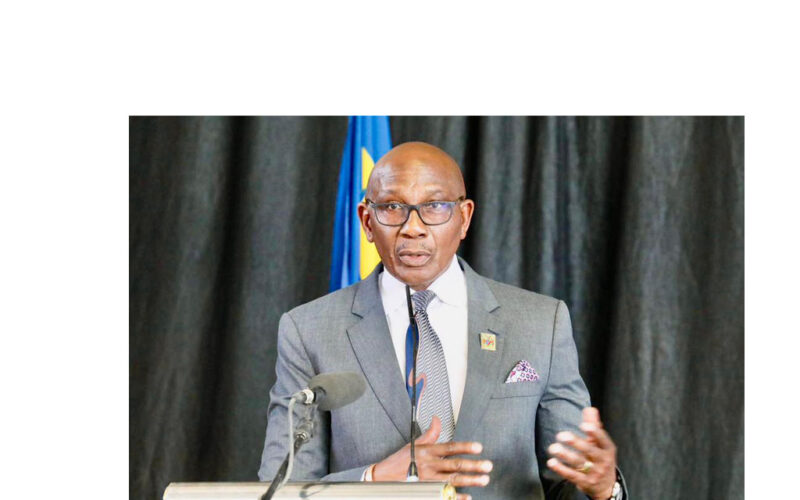Niël Terblanché
George Simataa, the Secretary to the Cabinet, delivered an insightful address at the Engagement Meeting of the Ministry of Information and Communication Technology (MICT) with Chief Regional Officers in Otjiwarongo, Namibia.
The topic of his speech was “Is the Public Service Fit for Purpose? The Collaborative Nature of Offices, Ministries, and Agencies (OMAs) in Service Delivery.”
Simataa answered “yes” to the question of whether the public service is fit for purpose but delved deeper into the complexities of this assertion.
Public Service as the Implementing Arm of the Government
Simataa emphasized the critical role that the public service plays as the implementing arm of the Namibian Government. All developmental efforts and service delivery initiatives depend on the dedication and competence of public servants. The government provides essential services such as education, health care, safety, transportation, utilities, welfare, and housing on a large scale, making the work of public servants pivotal in the nation’s development.
Enhancing Skills and Accountability
While recognizing the multifaceted nature of public service, Simataa highlighted the importance of developing specialist skills in areas such as economics, finance, IT, artificial intelligence, and human resource management. He also stressed the need to eliminate barriers that hinder the progression of technical and specialist grades within the public service.
To ensure accountability and effective service delivery, Namibia introduced the Performance Management System. This system involves the dev public servants accountable for their work,” he said.
Government Reforms and Innovations
He acknowledged the Office of the Prime Minister’s pivotal role in driving various reform initiatives within the public service, including e-Government, Business Process Re-engineering, Customer Service Charters, and Innovation.
“These reforms aim to improve efficiency, transparency, and service quality,” he said.
The Role of Regional Councils in Service Delivery
To ensure widespread service delivery, Namibia established Regional Councils across all fourteen regions after gaining independence in 1990. These councils were tasked with planning, managing, and controlling regional government affairs in alignment with national priorities.
“The Decentralisation Enabling Act of 2000 further standardized the transfer of functions from line Ministries to Regional Councils and Local Authorities,” he said.
Enhancing Productivity and Collaboration
He recognized the challenges of addressing productivity, performance, efficiency, and organizational design issues within the public service. While doing more with fewer resources is crucial, “doing better with less” should also be prioritized. The government continues its efforts to reduce the wage bill, and accounting officers have been directed to implement this directive rigorously.
One of the critical issues Simataa highlighted is the existence of silos within the public service. Silos occur when agencies work independently without sharing information or collaborating effectively.
“This mindset problem can hinder the efficient delivery of public services,” he said.
Breaking Down Silos for Greater Efficiency
Simataa emphasized the importance of collaborative efforts across OMAs, Offices, Ministries, and Agencies. He called for a shift from the “my Ministry” or “my Regional Council” mentality to an “our Government” mindset, where information flows freely among OMAs, leading to improved functions, efficiency, and service delivery.
In Simataa’s view, the elimination of silos means creating effective communication channels among OMAs, enabling them to share information seamlessly. Collaboration is essential for maximizing resources and improving the quality of services provided to the public.
A Unified Vision for Public Service
Simataa stressed the need for a unified vision within the public service. This vision should encompass the mandate of each OMA, the reasons behind specific goals, the plan for achieving these objectives, and the role of each employee in the larger context of public service.
He concluded by stressing that service delivery should never be considered optional, and public servants must strive for continuous improvement without expecting extra from the people they serve.
“The commitment to serving the Namibian people should remain unwavering, as public servants are guaranteed a salary for their service,” he said.
The analysis shed light on the challenges and opportunities within Namibia’s public service, calling for a collaborative, efficient, and accountable approach to better serve the nation’s citizens.




